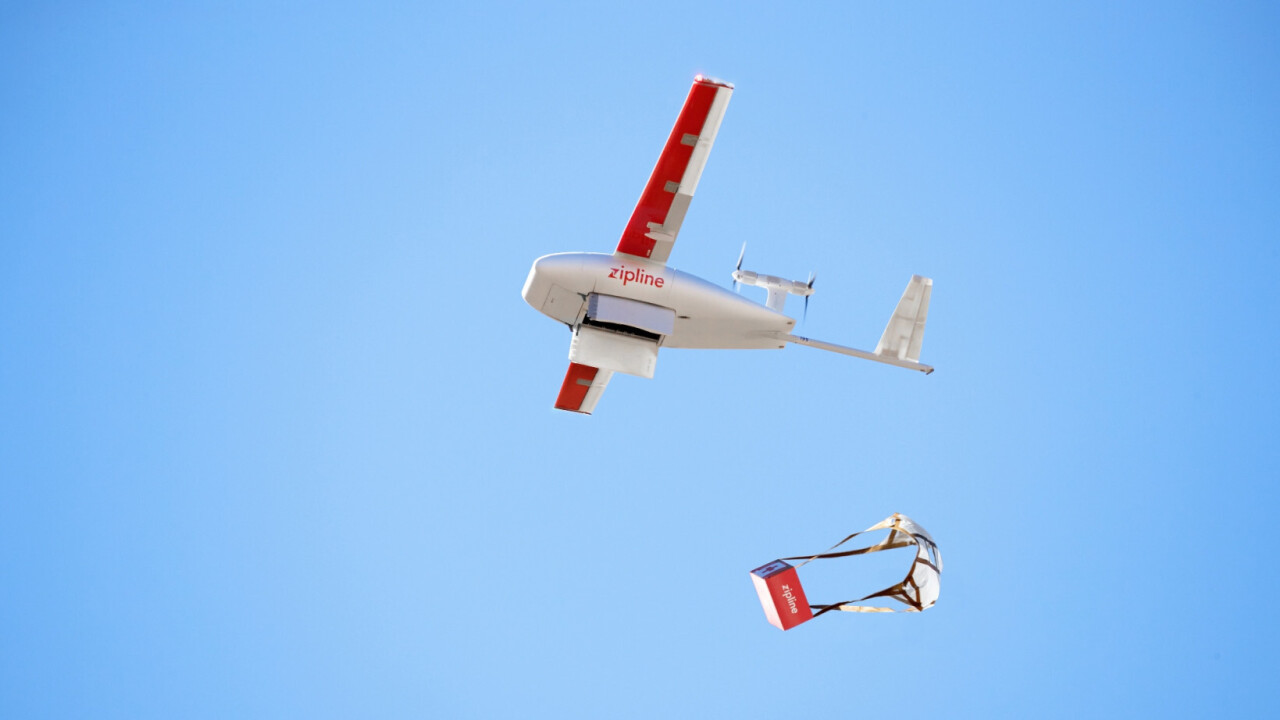
A branch of the UK’s National Health Service (NHS) is launching a drone delivery scheme across 30 medical facilities in the north of the country. The aim is to cut costs, while improving service to hundreds of thousands of patients.
The Northumbria Healthcare NHS Foundation Trust has been experimenting with autonomous drone deliveries for a while now, in partnership with UK-based Apian. The startup was founded by two former NHS doctors who wanted to make the delivery of critical medical supplies as convenient as “ordering a pizza”.
Apian — which is now made up of a 20+ strong team of aerial logistics experts — has developed an API platform that connects the NHS and major drone operators into one network. Think of it as the Uber Eats of drone delivery: the NHS is the restaurant, and the drone company provides the vehicles to deliver the food. Except in this case, the package is blood samples, surgical equipment or chemotherapy drugs.
“I’ve seen first hand the impact that running out of supplies can have on patient health outcomes,” said Dr. Christopher Law, co-founder of Apian. “Healthcare should benefit from on-demand delivery, much like consumers now do in their personal lives.”
While the healthcare trust’s drone trials have been pretty small-scale to date, it just teamed up with San Francisco-based Zipline — the world’s largest autonomous drone delivery company. Zipline’s fixed-wing drones can travel up to 210km and parachute packages onto hospital landing zones.
Along with Apian, the new partners aim to roll out a drone delivery service across Northumberland and North Tyneside in the second half of 2024. This region is home to over 500,000 people. Already used by companies like Pfizer and Walmart, the Zipline delivery system is expected to create a more efficient supply chain, ensuring facilities have the necessary medical devices and prescriptions in-stock to serve their patients.
“We believe this innovative technology could be used to improve healthcare outcomes, save money and eliminate supply chain complexities, and we’re keen to get started,” commented Sir James Mackey, chief executive at the Northumbria Healthcare NHS Foundation Trust.
Zipline will build a fulfilment centre for its operations near the Northumbria Specialist Emergency Care Hospital in Cramlington, Northumberland. The hub will stock a variety of medical products that the NHS can order through Apian’s platform. Zipline will then quickly dispatch the products to one of 30 general practitioners and hospitals across the region.
The partners say the system won’t just be quicker, but more sustainable too. “Today 3,000 pound gas vehicles driven by humans are used to deliver three-pound packages billions of times per year. It’s expensive, slow and bad for the environment,” said Zipline’s CEO Keller Rinaudo Cliffton.
Zipline, which already serves 3,000 hospitals globally, is now awaiting final regulatory approval from the Civil Aviation Authority (CAA) before it can roll out the service.
Get the TNW newsletter
Get the most important tech news in your inbox each week.





